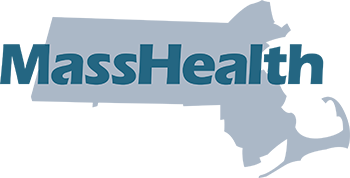Minimum Creditable Coverage (MCC) is the essential benefits you need to be considered insured and avoid tax penalties. Health insurers licensed in Massachusetts must let consumers know if their plans meet these standards. Look for a notice on the front of your plan documents.
People enrolled in out-of-state plans or their employer’s “self-insured” plan should contact their employer or insurer.
Types of Coverage That Automatically Meet MCC
- Medicare Part A or B
- Any ConnectorCare plan
- Any Health Connector plan
- MassHealth, except MassHealth Limited
- A Catastrophic Health Plan
- A Student Health Insurance Plan (SHIP) offered in Massachusetts
- A tribal or Indian Health Service plan
- TRICARE
- The U.S. Veterans Administration Health System
- Pre-Existing Condition Insurance Plan (PCIP)
- Peace Corps, VISTA, or AmeriCorps or National Civilian Community Corps coverage
- Any health arrangement provided by established religious organizations comprised of individuals with sincerely held beliefs provided certain standards are met. Learn more →
MCC Requirements for All Other Plans
A plan must cover a broad range of medical services, limit a subscriber’s out-of-pocket costs, and impose no limits on certain benefits. Please read the specific MCC requirements (PDF).
MCC Certification for Employers, Unions, Plan Sponsors and Insurers
Employers, unions, plan sponsors, and insurers can apply for MCC Certification if they have a comprehensive plan that does not quite meet all MCC requirements. They must identify how the plan deviates from the MCC standards. The relative value of the benefits should be at least comparable to a Bronze-level Health Connector, Qualified Health Plan. The MCC Resources box at top right has the documents you need to apply for MCC Certification. You must call 617-933-3030 if you plan to file 50 or more applications.
*A note on High Deductible Health Plans (HDHPs) – PDF
MCC Exemptions for Massachusetts Residents
You can get an exemption if Minimum Creditable Coverage is not affordable for you. The Health Connector has an Affordability Schedule to help you see if you might be exempt from the penalties.
Exemptions are determined through your state income tax filings. The tax forms also provide an option to appeal any penalties. If you refuse health insurance due to a sincerely held religious belief, you may also claim an exemption on your state tax forms.
The Health Connector also offers Certificates of Exemption if you face special circumstances or hardships. See the next section, below, for more information.
Related Resources
Two concepts form the basis of the exemptions process:
- “Minimum Creditable Coverage” – the essential health insurance benefits you need to avoid tax penalties in Massachusetts
- “Affordability” – the cost of the essential health insurance benefits. Based on that cost, your income, the health insurance options available to you, or a special hardship, you may be exempt from the tax penalties. Use our Affordability Tool to predict your penalty risk. An official penalty determination will come later, when you file your annual state tax return.
Certificate of Exemption
If you face a special financial hardship, the state’s tax forms give you an option to appeal the penalties for remaining uninsured. In addition, the Health Connector offers a Certificate of Exemption for individuals who can provide information about the 2024 tax year before it ends.
If you missed the December 1, 2024 deadline to apply for an exemption for 2024 when filing your taxes, remember you will also have the opportunity to request an exemption when filing your 2024 Massachusetts state tax return.
Additional Questions?
Please call Customer Service at 1-877-MA-ENROLL (1-877-623-6765), TTY 711 and choose from the available options.






